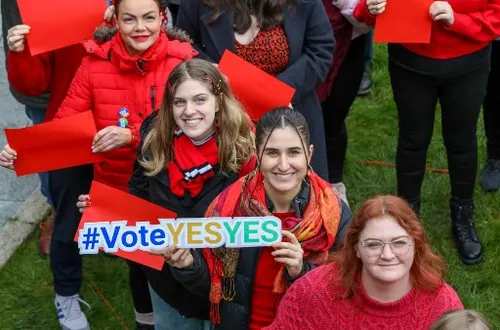
The Irish will vote on Friday (8) in a referendum to remove obsolete references to marriage and the place of women in the family from their 1937 Constitution, with proposals that also generate criticism.
If approved, the two amendments would modify article 41 of the Constitution, which speaks of marriage as the basis of the family, without considering other forms of couples, and limits the role of women to being a wife and housewife.
This Magna Carta was written almost a century ago, when a puritan branch of the Irish Church reigned in public and private life. The First Amendment seeks to expand the definition of family to include “long-term relationships” established outside of marriage, and to offer protections to these couples or families.
The second amendment proposes to eliminate an outdated reference to women’s role in the home, which suggests that they should care for the people who live with them under the same roof. The new and more extensive formulation would include all family members in the responsibility and task of caring for each other.
Path to equality
This referendum, organized on March 8, on International Women’s Day, seeks to “take a new step towards equality”, says Orla O’Connor, director of the National Council of Women of Ireland.
According to Yvonne Galligan, political scientist at the University of Technology Dublin, the new formulation on the extension of the notion of family constitutes a “logical progression”.
In this country with a strong Catholic tradition, with five million inhabitants, references to the role of women are “archaic and obsolete”, points out Catherine Cox, from the organization Family Carers Ireland, which supports people close to sick people.
The main Irish political parties support these changes and so far polls predict easy approval, despite the projection of a low participation rate.
But the vague wording of the amendments has drawn criticism in recent days. Center-right Prime Minister Leo Varadkar admitted that a “Yes” victory was not guaranteed for both.
“No one knows exactly what a ‘long-term relationship’ is, while everyone knows exactly what a marriage is,” criticizes David Quinn, founder of the Iona Institute, a group that defends the interests of the Catholic community.
“Many people will vote ‘No’ because of the confusion” caused and the disappearance of the words “woman” and “mother” from the text, he says.
Edition: AFP
Source: www.brasildefato.com.br

